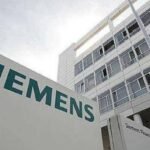
Lagos: ,The Nigeria Customs Service says the migration from Fast Track to Authorised Economic Operator (AEO) programme represents a new direction for trade facilitation in Nigeria and significant milestone in its modernisation.
The Comptroller-General of Customs, Bashir Adewale Adeniyi, made this known at a Stakeholders’ Engagement Forum on the Migration from the Fast Track Scheme to the Authorised Economic Operator (AEO) Programme in Lagos on Wednesday.

(A group picture of the Assistant Comptroller-General of Customs and comptrollers unveiling the Authorised Economy Operations guidelines in Lagos on Wednesday.)
(From L-R the Comptroller Federal Operation Unit Zone ‘A’, Comptroller Muhammed Shau’aib, Assistant Comptroller-General Zanna Chiroma, and the Zonal Coordinator Zone ‘A’, Assistant Comptroller General, Charles Orbih, at a Stakeholders’ Engagement Forum on the Migration from the Fast Track Scheme to the Authorised Economic Operator (AEO) Programme in Lagos on Wednesday.)
The theme of the programme is “From Fast Track to AEO: Enhancing Trade Facilitation and Supply Chain Security in Nigeria”.
NAN reports that the AEO programme was first piloted in Nigeria on April 15, 2024, following thorough testing, capacity building, and stakeholder consultations, while the national launch was held on Feb. 14.
The AEO objective is to identify and reward businesses that demonstrate consistent compliance with Customs and tax regulations by granting them faster, more predictable, and more efficient clearance processes.

Adeniyi, represented by Assistant Comptroller General of Customs, Charles Orbih, also the Zonal Coordinator Zone’A’, said the migration was developed in line with the World Customs Organisation’s SAFE Framework of Standards.
According to him, this is particularly its second pillar, Customs-to-Business partnerships, the AEO Programme promotes a modern system of risk management, facilitation, and compliance.
The comptroller-general said the new programme was a symbol of progress, a shift from gatekeeping to partnership, from delay to facilitation, from control to compliance.

He noted that the event’s theme was both timely and strategic because it captured the direction of its reforms at the service.
Adeniyi explained that the reform was aimed to support legitimate trade, enhance economic competitiveness, and strengthen national security through smarter, more collaborative approaches.
He said: “For over a decade, the Fast Track Scheme provided early benefits for compliant importers. However, it had limitations, mainly the absence of a legal framework the changing dynamics of the supply chain.
“It became clear that we needed to migrate to a model that is structured, risk-based, transparent, and globally recognised. That is what led to the design and implementation of the AEO Programme.
“Understanding the AEO programme is not just a new policy, it is a paradigm shift in the way Customs interacts with the private sector,” he said.
Adeniyi disclosed that a recent Time Release Study (TRS) conducted by the Service showed that the average clearance time for AEO traders was now 43 hours.
He noted that this was a significant reduction compared to non-AEO traders, which means less cost, faster delivery, and better control over their supply chains.
This reform not only supports trade facilitation but helps Nigeria meet its obligations under the WTO Trade Facilitation Agreement, making our trade ecosystem more competitive and business-friendly.
Adeniyi said to meet the criteria, businesses must meet strict eligibility criteria, maintain accurate records, follow Customs laws, pay the right duties, and cooperate during validations and audits.
He urged all qualified operators, importers, exporters, manufacturers, logistics providers, to come forward, get validated, and enjoy the full benefits of AEO status.
Also, Assistant Comptroller-General, Zanna Chiroma, said the forum was not just about information dissemination but about stakeholder inclusion; to listen, respond, and co-create a more efficient and predictable trade environment for all.
Chiroma, represented by Assistant Comptroller- General Tariff and Trade, Kingsley Egwu, said this migration was taking place within the broader framework of NCS reform.
He remind them that the Fast Track Scheme would be formally decommissioned on Dec. 31, 2025 and all existing beneficiaries were required to submit fresh AEO applications through our official portal: aeo.nigeriatradehub.gov.ng.
Chiroma said the Service had established clear operational guidelines, a competent AEO Unit, and a trained team of validators to ensure a smooth and credible transition process.
In an overview of Post Clearance Audit, the Chief Superintendent of Customs (PCA), Godwin Attah, said the objective of PCA was to improve the traders compliance which was a faster movement of trade facilitation.
Attah said that the principles of PCA focused on high risk area as well as involved on professional ethical standards which involved knowing your trade partners as well as engaging staff on continuous trainings and awareness.
He said: “PCA traders are segmented on four categories such as complaints traders, careless traders, temperamental and malicious traders are identify to build confidence between Customs and stakeholders.”
In his presentation on Strategic Overview AEO, the Chief Superintendent of Customs (CSC), Hammajad, Babangida said NCS designed the platform to assist stakeholders integrate them into the system.
Babangida said AEO was internationally recognised and customs and some other business communities had integrated into the platform which required no human interface from the point of sought to discharge of goods.
“Customs has engage in internal readiness from January to July while planing to sensitise stakeholders from August and full implementation of AEO will commence fully in December 2025,”Babangida said.
In her presentation on Fast Track VS AEO, the Chief Superintendent of Customs (CSC), Susan Adarafan, said Fast Track operations was legitimate but not captured in the Customs Act.
Adarafan said AEO had additional benefits of trade facilitation and security from the point of soughting to delivery.
“Before any trader can be integrated into AEO, he or she will most at least importing 100 containers annually for the period of two years.
“Fast Track is usually renewed yearly while AEO complained category will be reviewed after three years and the security category of AEO will be renewed in after five years to facilitate trade.
“Fast trade scheme is a domicile locally while AEO is globally recognise,” she said.
Also, the Director-General of the Manufacturer Association of Nigeria (MAN), Mr Segun Ajayi, who was represented by Mr Ope Sunday, commended the present leadership of customs for their critical and constant stakeholder engagement in facilitating trade in Nigeria.
Ajayi, while admitting the limitation experienced through the use of Fast Track cargo clearance procedures, added that customs could also make AEO more friendly to accommodate all their members.
He also appealed to customs to intervene on the Marine Police interference being experienced during the use of Fast Track, which he said delayed their time of doing business.











